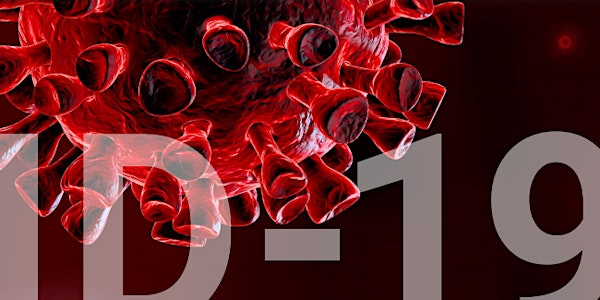
Surveillance of SARS-CoV-2 in sewage to gauge prevalence in the community
This seminar series will showcase on-going COVID-19 related research at University College Dublin
Date and time
Location
Online
About this event
Surveillance of SARS-CoV-2 in sewage to gauge prevalence in the community
Seminar Summary
Join the UCD Research Partners team for our regular 30min chat with researchers currently pursuing research relating to COVID-19 from across the 6 Colleges of UCD. In this session we will talk with Prof Wim Meijer (UCD School of Biomolecular and Biomedical Science) about the surveillance of SARS-CoV-2 in sewage, and how this may be used to gauge the prevalence of SARS-CoV-2 in the wider community, which would provide epidemiologists with valuable data to assess whether public health-mandated measures are effective. Furthermore, SARS-CoV-2 surveillance in sewage may be valuable as an early warning system for subsequent waves of infection. The UCD team (Nicola Fletcher, Laura Sala-Comorera, Liam Reynolds, Niamh Martin and John O’Sullivan) are currently determining the concentration of viral RNA in the influent of wastewater treatment plants.
Prof Wim Meijer
Wim Meijer obtained his PhD in 1990 from the Faculty of Mathematics & Natural Sciences, University of Groningen, the Netherlands, where he worked on the physiology and molecular biology of bacterial autotrophic carbon dioxide fixation under the supervision of Professor Lubbert Dijkhuizen. He subsequently joined the research team of Professor F. Robert Tabita, Ohio Eminent Scholar at The Ohio State University, to study the regulation of microbial gene expression in purple non-sulfur bacteria at the molecular level.
He was appointed as Lecturer in Microbiology at the University of Groningen in 1991, where he continued his research on the molecular biology and physiology of microbial metabolism and the regulation of gene expression. Through collaboration with others he developed an interest in environmental research, in particular the application of molecular tools to study ecological questions. He was appointed as Lecturer in the Department of Microbiology, University College Dublin in 1997.
His research team works in two thematic areas: water quality and human/animal health. His water themed research focuses on water quality of bathing waters and rivers, in particular in relation to fecal contamination, pathogens and antimicrobial resistance, working closely with colleagues in other disciplines (Civil Engineering and IT), with local authorities and national regulatory bodies. Animal health research is mainly focused on the Rhodococcus equi, a multi-host pathogen infecting phagocytic cells, and the role of microbiota in uterine health in relation to the development of endometritis. He currently is Professor of Microbiology and Head of the School of Biomolecular and Biomedical Science.
UCD COVID-19 Seminar Series
In order to help tackle this pandemic, we must leverage multidisciplinary research and innovation expertise from across our academic institutions. This highly relevant expertise spans a wide range of disciplines both scientific and non-scientific. Indeed, it is important to note that while the fundamental challenges is a health-related emergency, this pandemic will have significant implications for our society, our economy and future policy.
Across UCD and in our university hospitals, researchers are rising to the challenge of the COVID-19 pandemic. They are providing critical supports that have a real and tangible impact on patients’ lives. They are expanding Ireland’s testing capacity, developing new supply chains, manufacturing reagents, developing national contact tracing capability, and investigating new ways to tackle the disease.
Our researchers are working to better understand the impact on the health of our children during this pandemic, the impact on individuals with intellectual and disabilities and their caregivers, they are new methods for screening antiviral compounds, coordinating primary care networks, manufacturing PPE, producing critical reagents for testing, modelling populations behaviours, developing new medical devices to mitigate the risk of disease spread, investigating the host response to the disease, developing innovative remote monitoring technologies, and developing novel national disease surveillance methods.
This seminar series will showcase on-going COVID-19 related research at UCD to help facilitate greater interdisciplinary collaboration within UCD and with external partners.
We are using Basecamp to continue the conversation and facilitate collaboration online at UCD. Please select "Yes, please add me to UCD C19 Research Basecamp Portal" when prompted during the Eventbrite event registration process. Alternatively, please complete the webform linked here to join the UCD C19 Research Basecamp Portal.
Organised by
The Research Partners team advise and support academic leaders in the development of medium to long-term plans across UCD’s major research themes. Specifically, the team works on developing strategic elements of major funding proposals and they complement the work of the Research Programmes team.